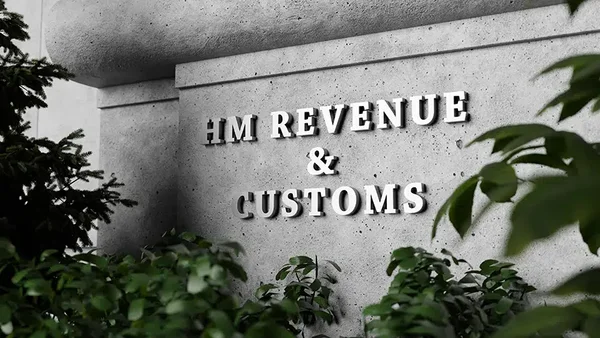Labour’s potential overhaul of the UK’s property tax system has ignited debate after leaked reports suggested that landlords would remain subject to stamp duty surcharges, even as owner-occupiers may see relief.
The Guardian revealed that Treasury officials are considering options for a new national property tax aimed at modernising a system many argue is outdated and unfair. One key proposal would see stamp duty replaced by a fresh tax on owner-occupied homes valued over £500,000, payable upon sale. However, landlords and second-home buyers would continue paying the additional surcharges already in place.
This prospective reform is part of a broader attempt to address growing concerns over inequality in the housing market. The sharp rise in UK property prices in recent decades has left the existing council tax system still based on early 1990s valuations looking increasingly obsolete. Yet while Labour’s plan may promise change, it also risks creating new divisions among homeowners, landlords, and investors.
Reform Proposals Under Review
The Guardian’s exclusive report highlights ongoing discussions within Whitehall over a shift from the current stamp duty model to a national property tax. Officials are weighing up whether the new levy should only apply to properties worth more than £500,000, a threshold that would particularly affect owners in London and the South East, where house prices are highest.
Labour has not officially committed to the plan, but the Treasury is said to be reviewing its viability. Crucially, while stamp duty might be replaced for owner-occupiers, surcharges on landlords and second-home owners would remain intact leaving property investors with no relief.
Landlords Still Left with the Bill
The decision to preserve stamp duty surcharges for landlords highlights the political sensitivity around property ownership in the UK. Landlords already face a 3% surcharge on additional properties, a cost that critics argue stifles investment in the rental market.
By maintaining this levy, Labour appears intent on balancing fairness for first-time buyers with discouraging speculative investment. However, landlord groups have warned that such measures could shrink rental supply and drive up rents at a time when housing affordability is already stretched.
Housing Inequality at the Core
According to The Guardian, Treasury officials are motivated by concerns that soaring house prices have entrenched inequality, leaving younger generations struggling to get on the property ladder. Council tax, which remains tied to outdated property values from the early 1990s, has become a particularly blunt instrument in addressing fairness.
A national property tax would allow central government to directly collect revenue through HMRC, ensuring receipts are based on real market values rather than outdated bands. Proponents argue this could help redistribute wealth more effectively, but opponents fear it will hit homeowners in high-value areas the hardest.

Challenges of Regional Disparities
One of the most difficult aspects of reforming property tax is the regional imbalance in house prices. A property valued at £600,000 in London might be considered modest, while in northern England it could represent one of the most expensive homes on the market. This raises serious questions about whether a national property tax threshold would unfairly penalise homeowners in certain regions.
Experts have suggested that any reform would need to incorporate regional adjustments or allowances, otherwise it risks entrenching a new form of unfairness while attempting to solve an old one.
Political Stakes for Labour
Beyond the technicalities of tax reform, Labour’s leadership faces a political balancing act. On the one hand, it must appeal to voters demanding fairness and action against housing inequality. On the other, it risks alienating middle-class homeowners who may feel targeted by new property levies.
Labour’s ability to frame the reforms as a modernisation rather than a burden will be crucial. The policy’s success could define the party’s economic credibility ahead of the next general election, where housing and taxation remain defining battlegrounds.
Wider Implications for the Housing Market
These proposed changes also come at a time of broader volatility in the housing sector, with high mortgage rates, limited supply, and growing rental demand. Any new taxation model will not exist in isolation but will interact with these pressures. Landlords facing higher costs may reduce their portfolios, leaving tenants with fewer choices. Meanwhile, first-time buyers could benefit if reforms succeed in cooling speculative investment, but only if supply keeps pace with demand.
In short, the reforms could reshape the dynamics of the UK housing market in ways that go well beyond tax receipts.

Final Summary
Headline Recap: Landlords left paying stamp duty despite Labour’s reform plan.
Labour’s property tax reform proposals represent a bold attempt to modernise an outdated and unfair system, but they come with sharp trade-offs. By replacing stamp duty with a new national property tax on owner-occupied homes, Labour hopes to address inequality and align taxation with current house values. Yet landlords and second-home buyers will see no relief, leaving them to continue paying the stamp duty surcharge.
The challenge for Labour lies in balancing fairness, fiscal stability, and housing supply. With property tax receipts forming a key part of government income, any change must be carefully designed to avoid unintended consequences.
For property owners, landlords, and investors trying to navigate these changes, Pie.tax offers a clear solution. The app helps individuals stay informed, plan ahead, and manage their tax responsibilities with ease ensuring they are never caught off guard by policy shifts. As the debate over property taxation continues, tools like Pie.tax could become essential for anyone impacted by the reforms.











